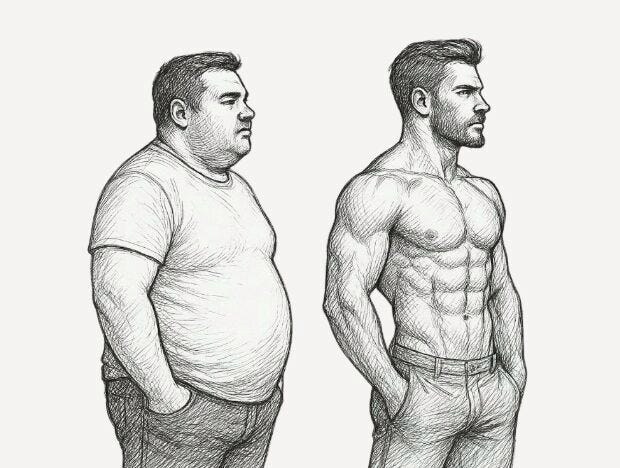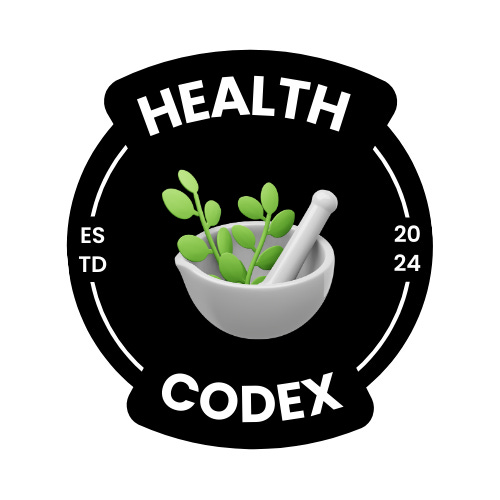Beyond Willpower: Why Your Brain is Sabotaging Your Weight Loss (And How to Reset Your Body's "Fat Thermostat")
For decades, the weight loss conversation has been dominated by a simple, punishing equation: "Eat less, move more." Knowing the connection between Body and Mind is key factor to controlling health.
For decades, the weight loss conversation has been dominated by a simple, punishing equation: "Eat less, move more." If you struggle with your weight, the implication has often been that you lack willpower or discipline. But what if the real culprit isn't your character, but your biology? Emerging science reveals a far more complex truth: your brain actively regulates your body fat levels like a thermostat. Understanding this is the key to sustainable health.
The Myth of the Simple Calorie
We've been sold a reductionist view. The idea that body fat is solely a matter of "calories in vs. calories out" ignores the powerful biological systems governing our metabolism, hunger, and energy storage. Your body isn't a passive bank account for calories; it's a dynamic, tightly regulated system with powerful defense mechanisms.

Meet Your Body's "Fat Thermostat": The Hypothalamus
Deep within your brain sits the hypothalamus. Think of it as your body's central command center for energy balance. It constantly monitors signals from your body, primarily through hormones, to determine how much fat you should be carrying – your "set point."
Leptin: The Satiety Signal: Fat cells release the hormone leptin. More fat = more leptin. This signal tells your hypothalamus, "We have ample energy stored! Ease up on hunger, boost metabolism."
The Set Point: Your hypothalamus has a predetermined range for leptin levels it considers "normal" for you. This defines your body fat set point.

Why Dieting Feels Like Pushing a Boulder Uphill (Hint: It Is)
When you drastically cut calories (dieting), several things happen that trigger your brain's defense systems:
Fat Loss = Leptin Drop: As you lose fat, leptin levels plummet.
Hypothalamus Panics: Your brain interprets this drop as starvation, a major threat to survival.
Defense Mechanisms Engage:
Hunger Skyrockets: Intense cravings, especially for calorie-dense, high-fat/high-sugar foods, become overwhelming. Willpower crumbles under this biological imperative.
Metabolism Slows: Your body becomes incredibly efficient, burning fewer calories at rest and during activity. That "eat less, move more" strategy hits a brick wall.
Energy Plummets: You feel fatigued, sluggish, and unmotivated to exercise – conserving energy becomes paramount.
The Inevitable Rebound: Driven by ravenous hunger and a slowed metabolism, weight regain is almost inevitable. Often, you end up heavier than before, as your hypothalamus now defends a higher set point to prepare for the next perceived "famine."
The Modern Saboteur: Leptin Resistance
Here's where modern life throws a wrench into this ancient system. Our environment promotes leptin resistance.
Processed Foods: Hyper-palatable foods loaded with refined carbs, sugars, unhealthy fats, and artificial additives disrupt normal leptin signaling. The hypothalamus becomes less responsive to leptin's "stop eating" message, even when fat stores are ample.
Chronic Stress: Elevated cortisol directly interferes with leptin sensitivity and promotes fat storage (especially visceral fat).
Inadequate Sleep: Poor sleep reduces leptin, increases ghrelin (the hunger hormone), and worsens leptin resistance.
Sedentary Lifestyle: Lack of movement further dysregulates metabolic hormones.
Leptin resistance means your hypothalamus thinks leptin levels are low (signaling starvation) even when your body fat is high. This locks you into a vicious cycle of defending an elevated set point.

Resetting Your Thermostat: Sustainable Strategies (Not Quick Fixes)
The goal isn't just short-term weight loss; it's lowering your body fat set point by improving your hypothalamus's sensitivity and overall metabolic health. This requires consistent, holistic changes, not crash diets:
Drastically Reduce Processed Foods: This is non-negotiable. Focus on whole, single-ingredient foods: vegetables, fruits, quality proteins (meat, fish, eggs, legumes), healthy fats (avocado, nuts, seeds, olive oil), and complex carbs (whole grains, tubers). This reduces inflammation and improves hormone signaling.
Prioritize Protein: Adequate protein at each meal increases satiety, boosts metabolism slightly (thermic effect of food), and helps preserve muscle mass during weight loss.
Manage Stress Relentlessly: Incorporate daily stress-reduction practices. This is crucial for hormone balance. Find what works: meditation, deep breathing, yoga, nature walks, hobbies.
Optimize Sleep (7-9 Hours): Treat sleep as essential medicine for metabolic health. Establish a consistent sleep schedule and a relaxing bedtime routine.
Move Consistently (Focus on Building Muscle): Ditch the "kill yourself at the gym" mentality. Prioritize regular movement (walking is fantastic!) and incorporate strength training 2-3 times per week. Muscle is metabolically active and improves insulin sensitivity.
Cultivate Patience & Consistency: Resetting your set point takes time (months, not weeks). Focus on how you feel (energy, mood, digestion, sleep) as primary metrics, not just the scale. Consistent application of healthy habits is the key.

The Takeaway: It's Biology, Not Just Willpower
Stop blaming yourself for failed diets. The struggle is real, and it's rooted in powerful biological mechanisms designed for survival in a world of scarcity – mechanisms utterly overwhelmed by our modern environment of abundance and processed foods.
The path to lasting metabolic health and a healthier body composition lies in working with your biology, not against it. By nourishing your body with whole foods, managing stress, prioritizing sleep, and moving consistently, you gently guide your hypothalamus to recognize a leaner, healthier state as your new "normal." It’s a journey of metabolic healing, not punishment. That's where true freedom lies.

FAQ:
Q: Does this mean calories don't matter?
A: Calories are part of the equation, but they aren't the whole story. Hormones significantly influence how many calories you eat (hunger/satiety) and how many you burn (metabolism). Focusing only on calories ignores the hormonal drivers.
Q: How long does it take to reset the set point?
A: There's no fixed timeline. It depends on individual factors like starting point, level of leptin resistance, genetics, and consistency with lifestyle changes. Think months of consistent healthy habits, not weeks of deprivation.
Q: Are certain foods best for lowering leptin resistance?
A: Focus on the pattern: a whole-food diet rich in fiber (from veggies, fruits, legumes), quality protein, and healthy fats is key. No single "magic" food exists, but reducing processed foods, especially refined sugars and seed oils, is critical.
Q: Is exercise useless for weight loss?
A: Absolutely not! Exercise is vital for health and metabolic function. It improves insulin sensitivity, builds muscle (which burns more calories at rest), reduces stress, and supports overall well-being. Its direct calorie-burning effect might be smaller than we thought, but its metabolic benefits are profound and essential for resetting your set point. Focus on movement you enjoy and can sustain.
**Disclaimer:**
The information provided in this blog is for general informational purposes only and is not intended to be a substitute for professional medical advice, diagnosis, or treatment. Always seek the advice of your physician or other qualified health care provider with any questions you may have regarding a medical condition.
Never disregard professional medical advice or delay in seeking it because of something you have read on this blog. If you think you may have a medical emergency, call your doctor or emergency services immediately. The Health Codex and the publisher of this blog make no representations or warranties regarding the accuracy, reliability, or completeness of the information presented here. Any reliance on the information is solely at your own risk.








